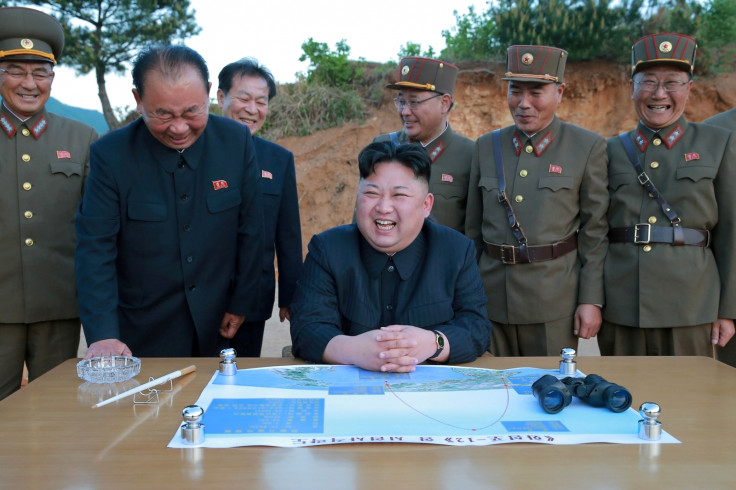Donald Trump vs North Korea: Where does this nuclear war of words end?
Donald Trump and Kim Jong-un both like to win. But the nuclear game is not one either wants to to play.
For a country as small as North Korea, it is causing some very big headaches as its war of words with the United States reaches new levels. The rhetoric between Pyongyang and Washington has slowly escalated in recent years, but a sharp increase in the number of missile tests and a wave of fresh UN-backed sanctions has raised the temperature.
News that North Korea is believed to be capable of miniaturising nuclear warheads onto intercontinental ballistic missiles sparked a backlash from President Donald Trump. In response, the hermit nation said they are considering hitting Guam with a pre-emptive missile strike.
Nuclear war is far from a certainty. But the world has taken a step closer to it without a single bullet being fired. And that is the danger in the game that Trump and Kim are playing – the game of brinkmanship.
Breaking new ground with his rhetoric against the Kim regime, Trump said North Korea would be "met with fire and fury like the world has never seen" if it threatens the US.
Scott Snyder is senior fellow for Korea studies and director of the program on US-Korea policy at the Council on Foreign Relations. He said: "It tells me that the president is very upset and doesn't like the way that North Korea talks, he's obviously not used to the propaganda that comes out of North Korea."
Trump's latest tweets have a strong but toned-down style to them, saying: "My first order as president was to renovate and modernise our nuclear arsenal. It is now far stronger and more powerful than ever before. Hopefully we will never have to use this power, but there will never be a time that we are not the most powerful nation in the world!"
Politicians in Washington have urged for calm. Senator John McCain said that he was "not sure that President Trump is ready to act".
Senator Lindsey Graham said that there were two scenarios that could see the US go to war: "If they attacked Guam, or some other American interest or our allies. Or if they try to keep developing an ICBM with a nuclear weapon on top to hit the homeland."
Snyder also discussed how presidents have tried and failed to contain the Korean problem in the past. He said: "Making threats that they may or may not be able to follow through on. President Clinton in the 1990s went to the De-Militarised Zone and said that if North Korea had nuclear weapons it would be the end of their state, and President Bush talked about the axis of evil, referring to North Korea.
"But the question really becomes where is the red line? Is it North Korea having the capability to potentially threaten the US or is there some other line given that we know that Kim Jong-un is not suicidal, he knows that it would be a suicidal option."

Hamish de Bretton-Gordon, a former commanding officer of the British Armed Forces Joint Chemical Biological Radiological Nuclear (CBRN) Regiment, said: "We have underestimated North Korea's nuclear capabilities. They seem to have a missile that can go that far [to Guam]. They are very close to it and the strategic importance of Guam would be like a nuclear missile aimed at the White House."
He added that "forcible diplomacy" was needed and expressed his disappointment about the lack of conversation from Russia and China.
A sudden trip from Secretary of State Rex Tillerson to Guam suggests that the US isn't overly concerned about an imminent threat to the island. Nevertheless, officials in the US are keen to keep the pressure on North Korea while at the same time not pushing them into any rash actions.
Beijing, Seoul and Tokyo have all stressed the need for action without increasing tensions in the Korean peninsular. But this isn't so easy when the two protagonists are Donald Trump and Kim Jong-un
If North Korea views Trump's words as a declaration of war, they will act, for neither Trump nor Kim enjoy being made to look weak or undermined. All sides will now be hoping for the rhetoric to cool in the coming days, before approaching more traditional diplomatic avenues.
© Copyright IBTimes 2025. All rights reserved.






















